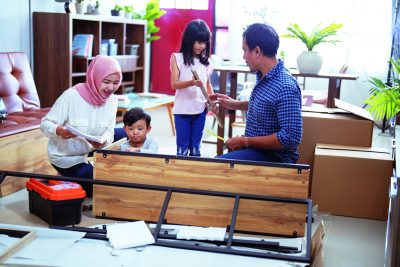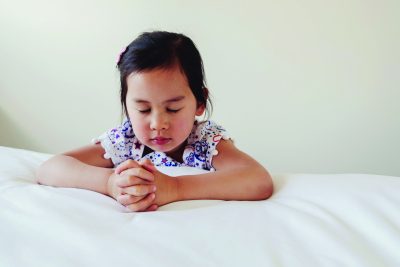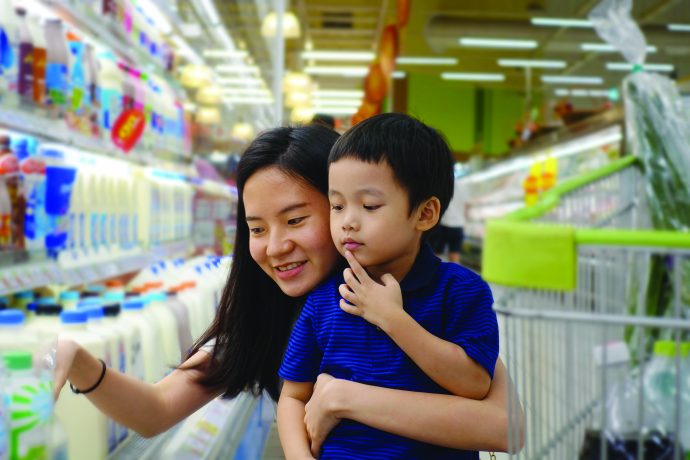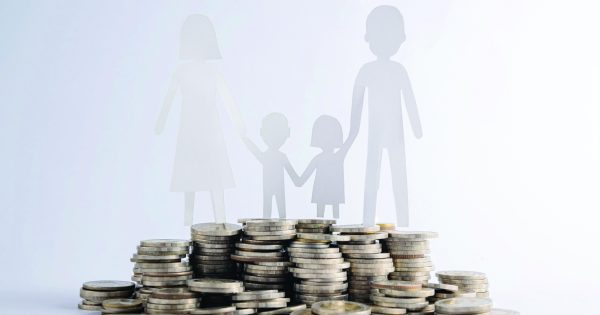Are you one of those “tiger parents” who insists your child gets straight A’s at school? Positive Parenting advocates that in order to prepare your children for the real world, mums and dads should be concerned with more than just academic learning. They should also focus on helping their children learn and develop life skills, as well as positive values, so they grow up to be well-rounded, responsible and caring individuals.
Importance of life skills and soft skills in adulthood

Prof Dr Alvin Ng, Founding President of the Malaysian Society of Clinical Psychology, says that children are too often defined by their grades, while life and soft skills are put on the backburner.
“The truth is that while grades are indeed a good indicator of one’s strengths and do highlight areas to improve, they should never be the only thing parents focus on. It’s just as important to devote your attention to building up your child’s adaptive skills and competencies such as problem-solving and critical thinking,” said Prof Ng.
Children with problem-solving skills, according to the clinical psychologist, learn how to manage their emotions, think creatively and persist until they find a solution to their problems. In turn, they grow up to be more confident and independent individuals who are not easily frustrated or disheartened when something doesn’t go their way.
The COVID-19 pandemic was a good example of how problem-solving and creative/critical thinking skills helped many grown-ups cope with losing their jobs and having to work from home. When they landed in uncharted territory, those with these types of life skills persisted and found a way to move on.
Prof Ng adds that friendship skills are also crucial for adult life. “We don’t really make it a point to help our children emotionally navigate their different relationships as much as we should,” he said. “Try having open and honest conversations with your kids about their friends; and as they grow up, their more mature relationships with boyfriends and girlfriends, which may even result in marriage.”
Learning how to deal with relationships when your child is young will certainly be an advantage when he or she grows up and starts a family of their own. Relationships are tricky and feelings are complicated. The sooner you grasp how to handle them, the better.
Prof Ng says parents should make it a point to discuss problems and validate their children’s feelings. “Validation is the crux of relationships that tends to be missed out. People value acceptance and are very afraid of rejection. Validation helps to maintain that sense of acceptance, which strengthens relationships.”
Another aspect that parents can actively teach and role-model for their kids is managing health and finances. “Teach your child to build up healthy habits that go beyond the usually discussed nutrition, exercise, rest and sleep – try limiting screen time by having family reading time and encourage your child to read food labels when grocery shopping. This teaches them to make better choices for health and budget. You can also engage in physical activities as a family – try attending zumba or yoga classes together, and of course, make time to play badminton, go swimming and hiking together as all are great ways to connect and create bonds.
You want to also help your child build a sense of community, as well as an ecological responsibility and accountability. “Or what I like to call a planetary health approach,” Prof Ng says. “This really puts wellness into context. Because for one to be well, our community, and really, the whole planet, needs to be well too.”
The right thing at the right time

Consultant Developmental Paediatrician Dr Rajini Sarvananthan shares that it’s important to teach children different values at different stages in their lives.
From a young age, you can start instilling the notion of gender equality. “Both sons and daughters can be encouraged to participate in chores like making their beds, folding their laundry and putting it away, helping out in the kitchen and taking out the garbage. When carrying out do-it-yourself projects at home – for example, if you were making a playhouse for your children or painting the bedroom – mums and dads can get kids to help out by handing them tools, holding equipment, suggesting ideas and other simple tasks.”
As they grow older, start to offer them opportunities to engage with the community around them. Here, parents can role model tolerance and respect for others. Teach your child to care and respect elders, starting with their grandparents, as well as elderly folk they may run into at the park or restaurants.
Encourage them to take part in neighbourhood activities such as gotong royong, community gardening and festive gatherings. Make it a point to talk about our different cultures and how and why people celebrate and observe different festivals.
Dr Rajini says involving children in understanding money matters can start early on too. Turn your day-to-day activities into learning experiences for them. Trips to the ATM and shopping mall can provide opportunities for you to talk about your values and how you use money.
When children are very young, you can work the concepts of money into games, like pretend-playing that you are at a shop or restaurant. When they grow older, you can show your children how you budget your money for the month and encourage them to save for things they would like to buy.
Teach your children how to effectively communicate with those around them and provide opportunities for them to converse with people outside their family circle. For example, learning how to interact with other adults at a store or at a dinner party.
Dr Rajini adds that teamwork, time management and a sense of responsibility are all teachable skills. Planning and preparing meals together at home, organising family holidays and parties, encouraging your children to feed and groom their own pets and going shopping together are just some types of activities that you can do together so your children develop these skills organically.
In time, they will learn to have a broader view, and not just learn to take care of themselves, but the extended family and community around them.
Prof Ng adds that on top of these, parents should also be supportive and give their children opportunities to hone their critical thinking, leadership skills, positive attitude, creativity and adaptability.
“When solving problems, or when tackling work at school, we should be encouraging our children to ask questions and to creatively think of ideas, rather than simply look for the “right answer” all the time. It is better to focus on the how and why, which sadly is very much lacking in formal education these days,” says Prof Ng.
Encourage positive values

When it comes to coping in the real world, Datuk Dr Zulkifli Ismail, Chairman of Positive Parenting, feels it is important for parents to bring their children up in faith.
“Spirituality is an integral component in parenting that should not be overlooked. Through spirituality, we can role model and encourage our children to practise positive traits such as gratitude, kindness and empathy,” Dr Zulkifli says.
“Communication at home is also very important. As parents, we should be making it a point to share things with our children, so they in turn will learn to listen as well as feel comfortable talking about their lives and their challenges with us. By playing together, praying together, having meals together, and spending time doing meaningful activities, our bonds will grow stronger and our children will surely learn how to communicate their feelings and thoughts more effectively.”
Many of us would fondly remember learning these soft skills – such as how to bake cookies or change a lightbulb or iron a shirt – from our own parents and grandparents or older siblings. It is essential to incorporate this sort of teaching and learning into our children’s daily lives too.
Learning these skills is just like learning how to do chores. After all, if you don’t throw out the trash, your life will stink! Similarly, if you don’t learn how to be kind to your elders or work together with your community, chances are you won’t automatically know how to do these things and you will struggle later in life.
Remember that life is more than grades and scores. To prepare children for the real world, equip them with soft skills and positive values so that they will grow up to be a well-adjusted, wholesome adult.







Comments